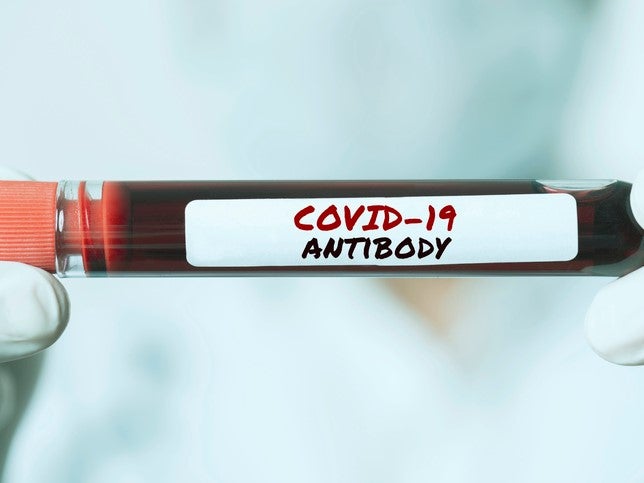Coronavirus antibodies last at least six months after infection in most people, study shows
Research finds 88 per cent of participants still had some protection half a year after having deadly bug

Your support helps us to tell the story
From reproductive rights to climate change to Big Tech, The Independent is on the ground when the story is developing. Whether it's investigating the financials of Elon Musk's pro-Trump PAC or producing our latest documentary, 'The A Word', which shines a light on the American women fighting for reproductive rights, we know how important it is to parse out the facts from the messaging.
At such a critical moment in US history, we need reporters on the ground. Your donation allows us to keep sending journalists to speak to both sides of the story.
The Independent is trusted by Americans across the entire political spectrum. And unlike many other quality news outlets, we choose not to lock Americans out of our reporting and analysis with paywalls. We believe quality journalism should be available to everyone, paid for by those who can afford it.
Your support makes all the difference.Coronavirus antibodies last for at least six months after infection for the vast majority of people, according to a new study.
The research also suggested 8.8 per cent of the UK’s population had been infected by December, rising as high as 12.4 per cent in London.
The study, by the UK Biobank medical database, found 99 per cent participants who had tested positive for the deadly bug retained antibodies three months later, while 88 per cent did so six months afterwards.
Professor Naomi Allen, chief scientist with UK Biobank, said: “Although we cannot be certain how this relates to immunity, the results suggest that people may be protected against subsequent infection for at least six months following natural infection.
"More prolonged follow-up will allow us to determine how long such protection is likely to last."
For the six-month period from the end of May 2020 to the beginning of December 2020, the researchers collected monthly blood samples and data on potential symptoms from 20,200 UK Biobank participants.
In doing so, it found that the proportion of the population with antibodies to SarsCoV-2 - which suggests past infection - rose from 6.6 per cent at the start of the study period, to 8.8 per cent by the end of it.
These antibodies were most common in younger participants (13.5 per cent in those under 30) and lowest in the elderly (6.7 per cent among those over 70). They were also most prevalent among those of black ethnicity (16.3 per cent) and lowest among white (8.5 per cent) and Chinese ethnicities (7.5 per cent).
The most common symptom associated with having coronavirus antibodies was a loss of sense of taste and smell, which was reported by 43 per cent of those who had antibodies.
But the researchers warned that just because people have built up an antibody response, it does not mean they are not infectious. For that, wider research is needed.
Professor Sir Rory Collins, UK Biobank principal investigator and professor of medicine and epidemiology at the University of Oxford, said: "Both with vaccines and indeed with past infection, we don't yet know what impact that has on the ability to be carrying the virus and transmitting to others.
"So I think one important message both for people who have been infected, and for people being vaccinated, is you may be protected, to some extent, but you may still put others at risk.”
Sir Patrick Vallance, the government chief scientific adviser, said: "These latest results provide useful confirmation of the maintenance of antibodies to Sars-CoV-2 over six months.
"Having the results of the study available within UK Biobank's rich resource will allow further understanding of the disease impact over time."

Join our commenting forum
Join thought-provoking conversations, follow other Independent readers and see their replies
Comments